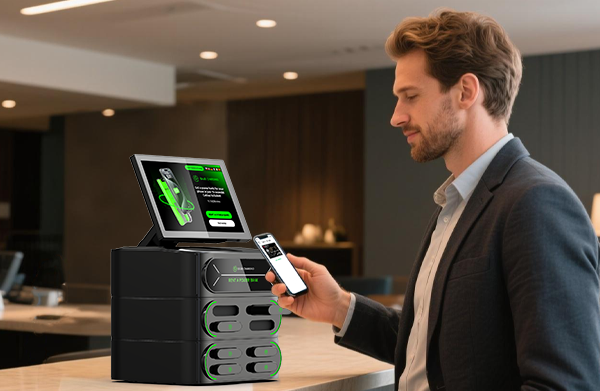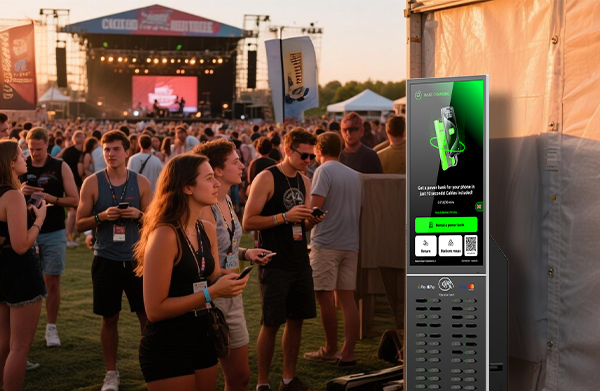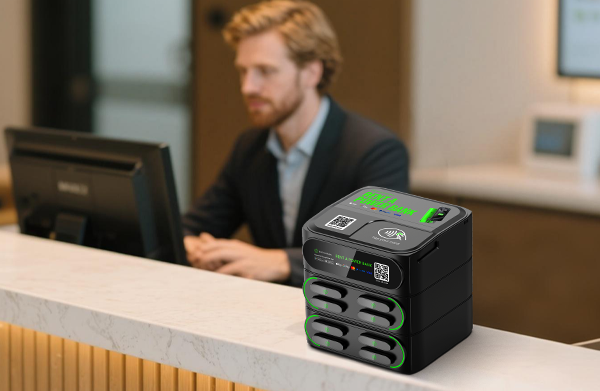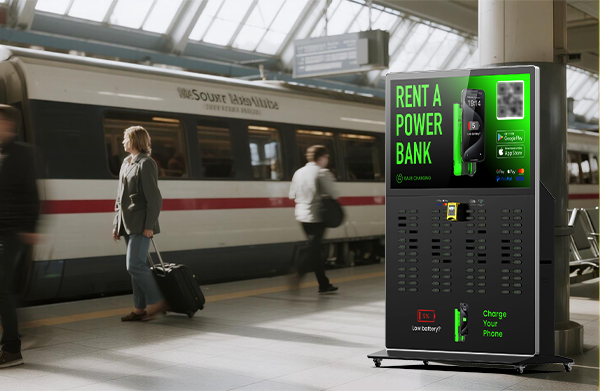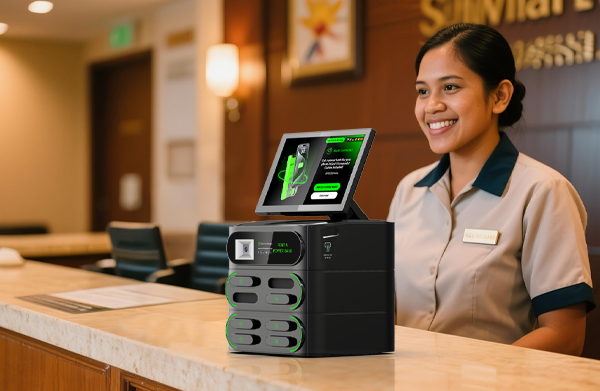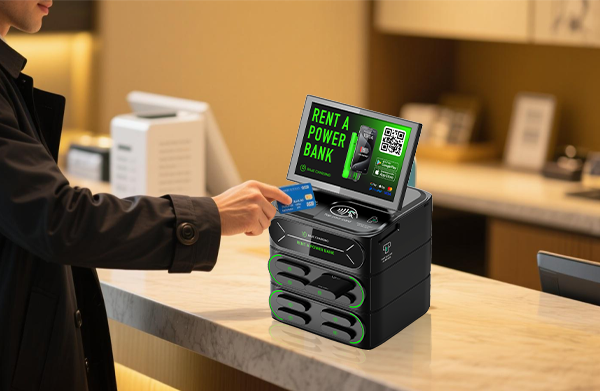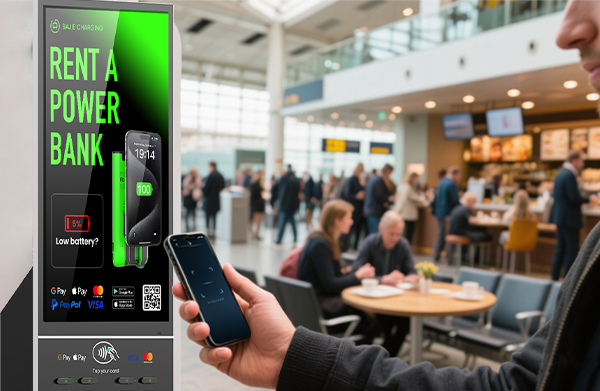Shared power banks offer a convenient mobile charging rental service that addresses users’ urgent needs for phone battery life anytime and anywhere. Users can rent power banks in public places such as shopping malls, restaurants, and stations, and return them to any station after use, paying rental fees based on the duration of use.
Shared power stations are generally divided into tabletop and floor-standing types, with a fixed number of ports such as 5/6/8/12/24. If investors need to increase deployments at high-demand sites, they usually have to purchase new equipment, which increases investment costs. Modular shared charging stations launched by power bank manufacturers can flexibly increase or decrease modules based on actual usage (rental volume, number of users), without replacing or purchasing new equipment, thus maximizing investment efficiency.
psd1.png)
1.What is a modular shared charging station?
A modular shared charging station is a smart charging device with flexible scalability, adopting a modular design that supports free combinations of multiple cabinets (4/8/12/16/20/24 ports), allowing the number of modules to be adjusted according to actual needs. It solves the pain point of traditional shared power banks having a fixed number of ports and enables dynamic module adjustments tailored to different scenarios (such as malls, stations, restaurants), optimizing operations according to foot traffic and space conditions.
Deploying a traditional 12-port shared charging station in a venue may lead to insufficient power banks during peak hours, resulting in customer loss. In small venues, deploying a 24-port floor-standing station leads to high investment costs and low traffic, easily causing idle equipment and capital waste.
Modular shared charging stations can flexibly meet the charging needs of small and medium traffic venues. Since the station consists of independent modules, it can be freely combined into cabinets with 4/8/12/16/20/24 ports. Investors can increase cabinet modules based on rental volume to meet growing business demands.
Moreover, compared to floor-standing charging stations, a 24-port modular shared charging station offers higher cost-effectiveness. Purchasing one floor-standing charging station costs as much as 2.5 units of screenless 24-port modular charging stations. Investors can reduce initial investment costs, achieve minimal-scale deployment, and improve capital efficiency.
2.What are the advantages of modular power bank sharing?
- Flexible Configuration, Convenient and Cost-Effective
Modular shared charging stations can be freely combined, allowing additional modules at any time based on actual demand and user frequency. They help reduce investors’ deployment cost pressure, optimize cost-efficiency, and achieve high investment returns.
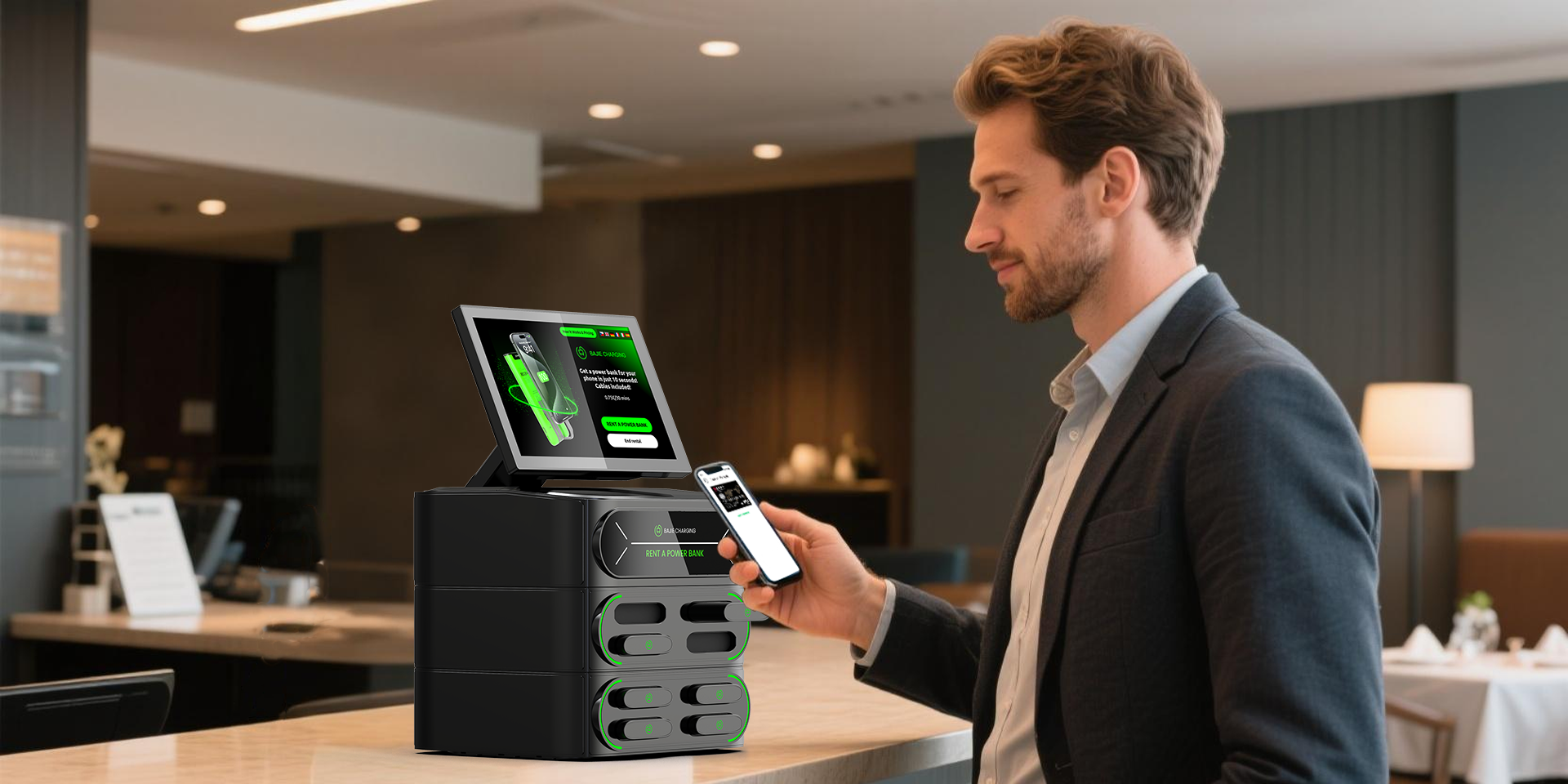
Conventional tabletop/floor-standing stations occupy desktop/floor space, while modular stations can be deployed using standing racks or wall-mounted racks, making them easier to install in compact venues without occupying business space. The equipment position can be adjusted anytime to flexibly meet different scenario requirements.
- Easy Maintenance, Lower Maintenance Costs
When a device fails, only a single module needs to be replaced or repaired, ensuring convenient maintenance without affecting user rentals. The cabinet adopts a modular design for independent installation, upgrading, or replacement, reducing maintenance complexity and costs. In contrast, traditional stations have complex internal structures and require more skilled technicians for maintenance, increasing difficulty and cost.
| Product Feature | Modular Shared Charging Station | Traditional Shared Charging Station |
|---|---|---|
| Deployment Flexibility | Desktop/Standing/Wall-mounted placement, space-saving, flexible | Fixed placement, requires more space, placement limited by layout |
| Maintenance Difficulty | Easy module replacement with low cost | Entire unit inspection required, higher maintenance cost |
| ROI Cycle | Low initial investment, flexible configuration, high efficiency | Higher initial investment, limited operational efficiency |
| Resource Utilization | Add/remove modules as needed, accurate demand matching | Fixed port number, often leads to idle or insufficient units |
- Helping Investors Expand the Market
Traditional shared charging stations have fixed cabinet port numbers, while modular stations allow investors to optimize deployment based on rental frequency. In areas with frequent rentals and dense traffic, cabinets can be flexibly configured, and equipment from low-demand sites can be transferred to high-demand venues to increase site revenue.
Demand-based deployment reduces investors’ initial investment pressure, allowing them to match market demand more precisely and gain greater competitive advantage. Modular shared charging stations help investors capture market share at minimal cost.
June 12, 2025

